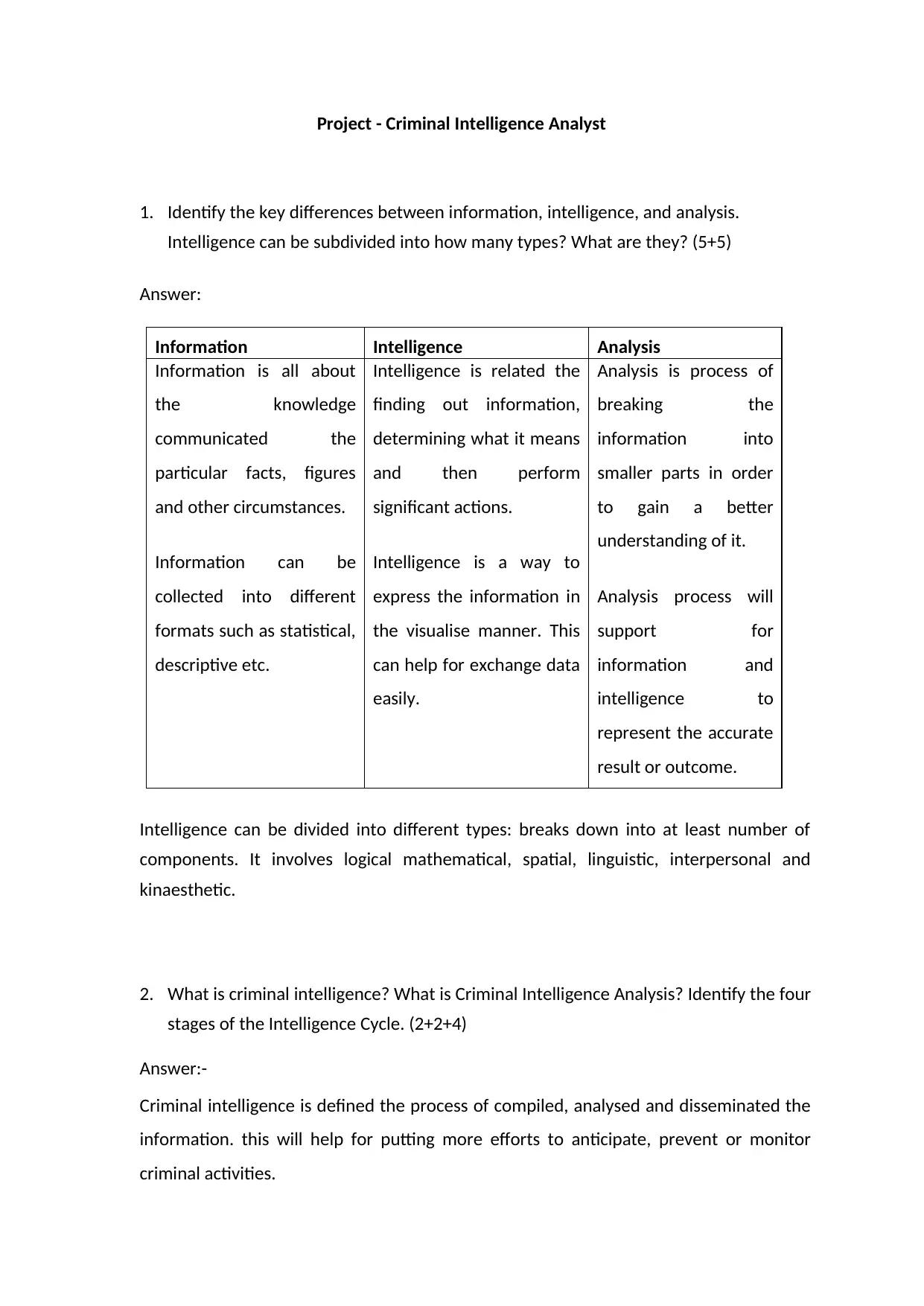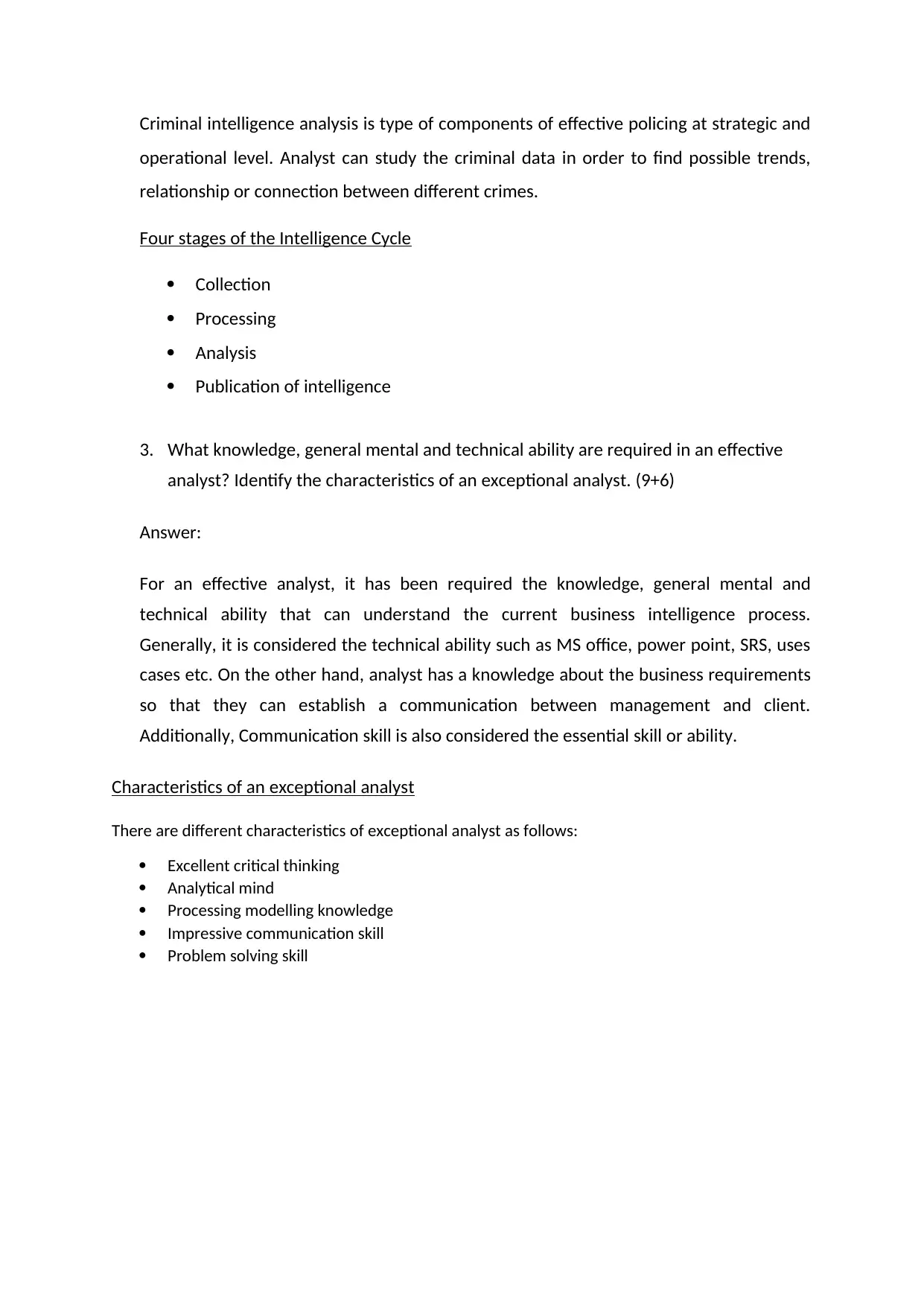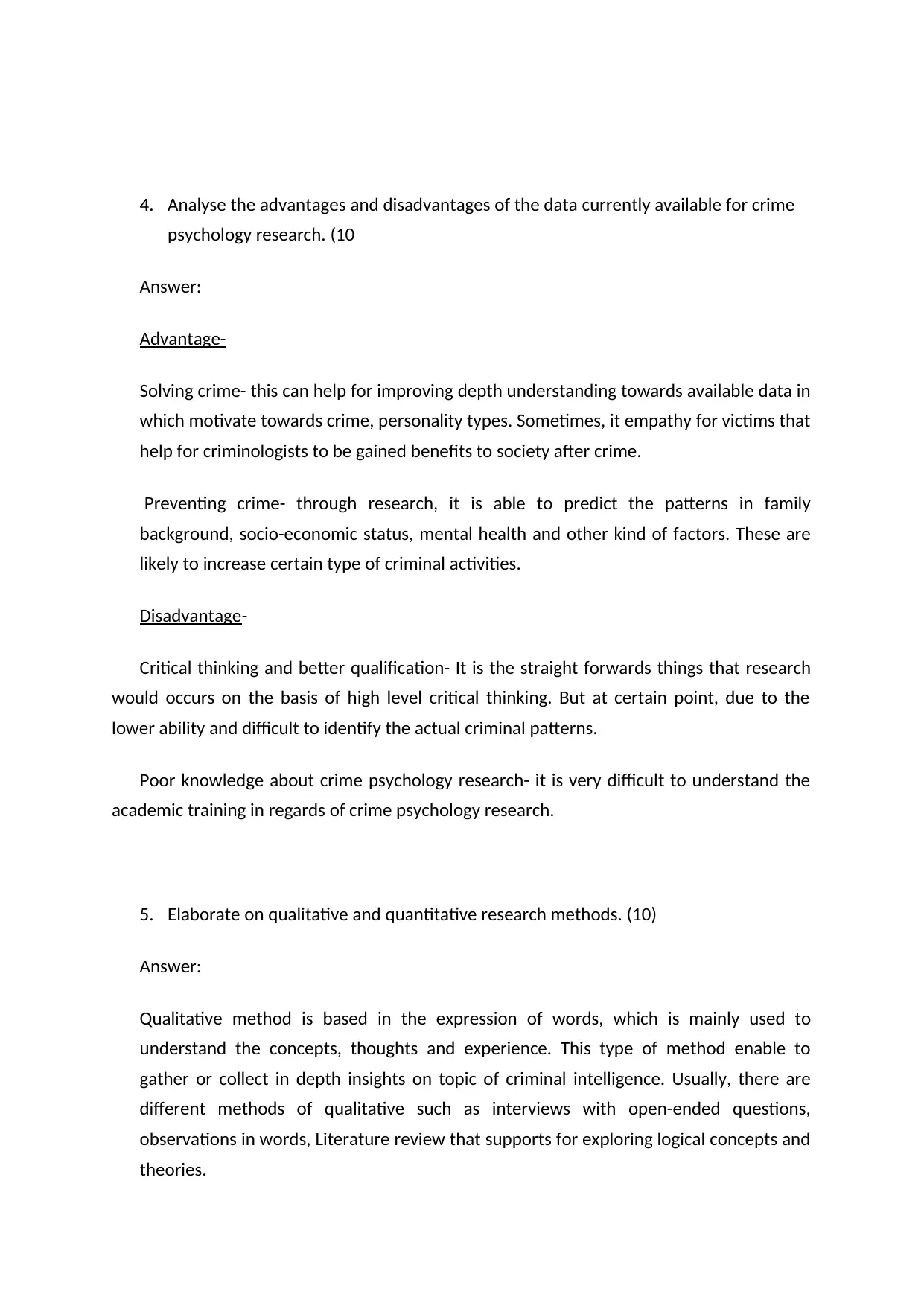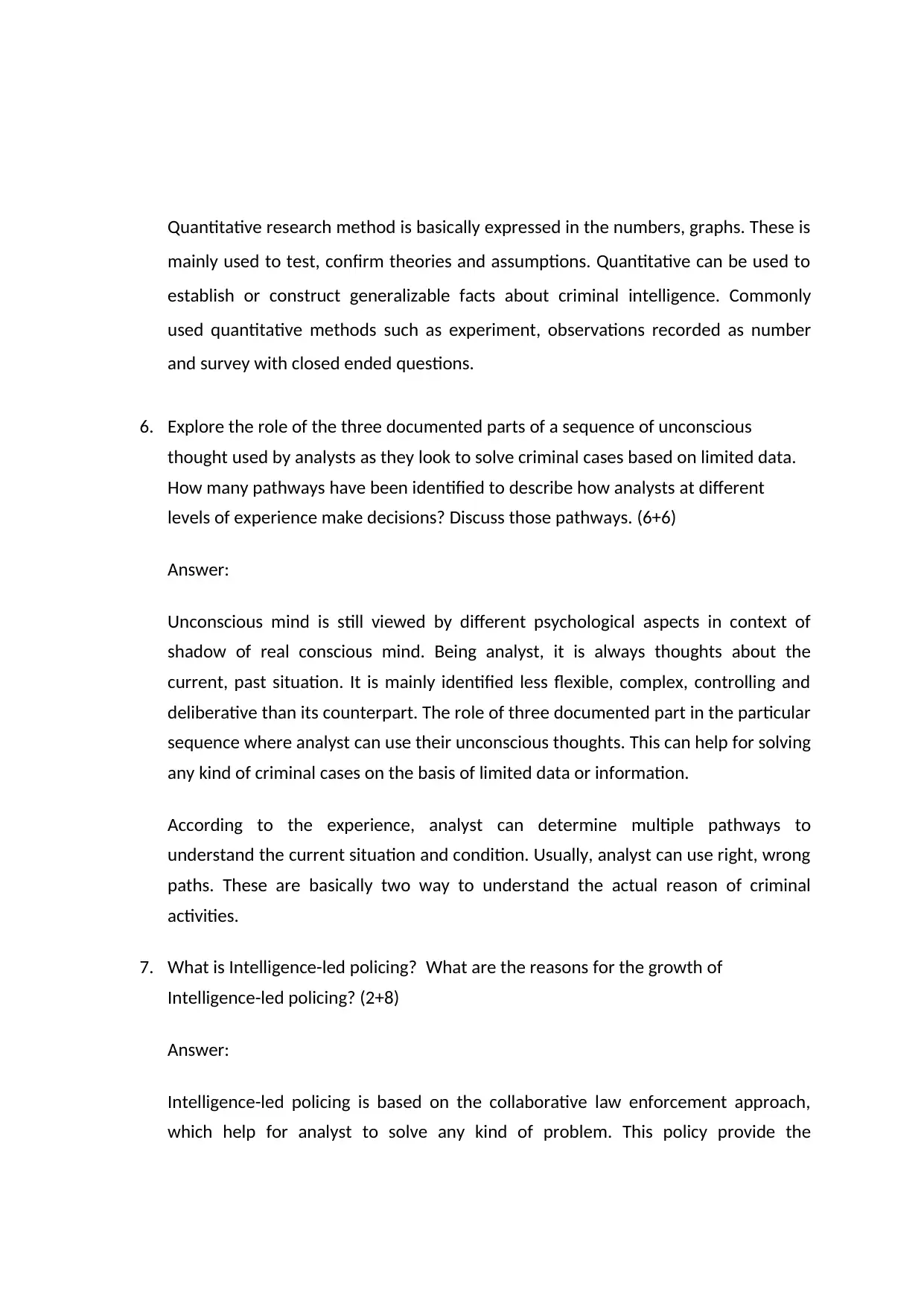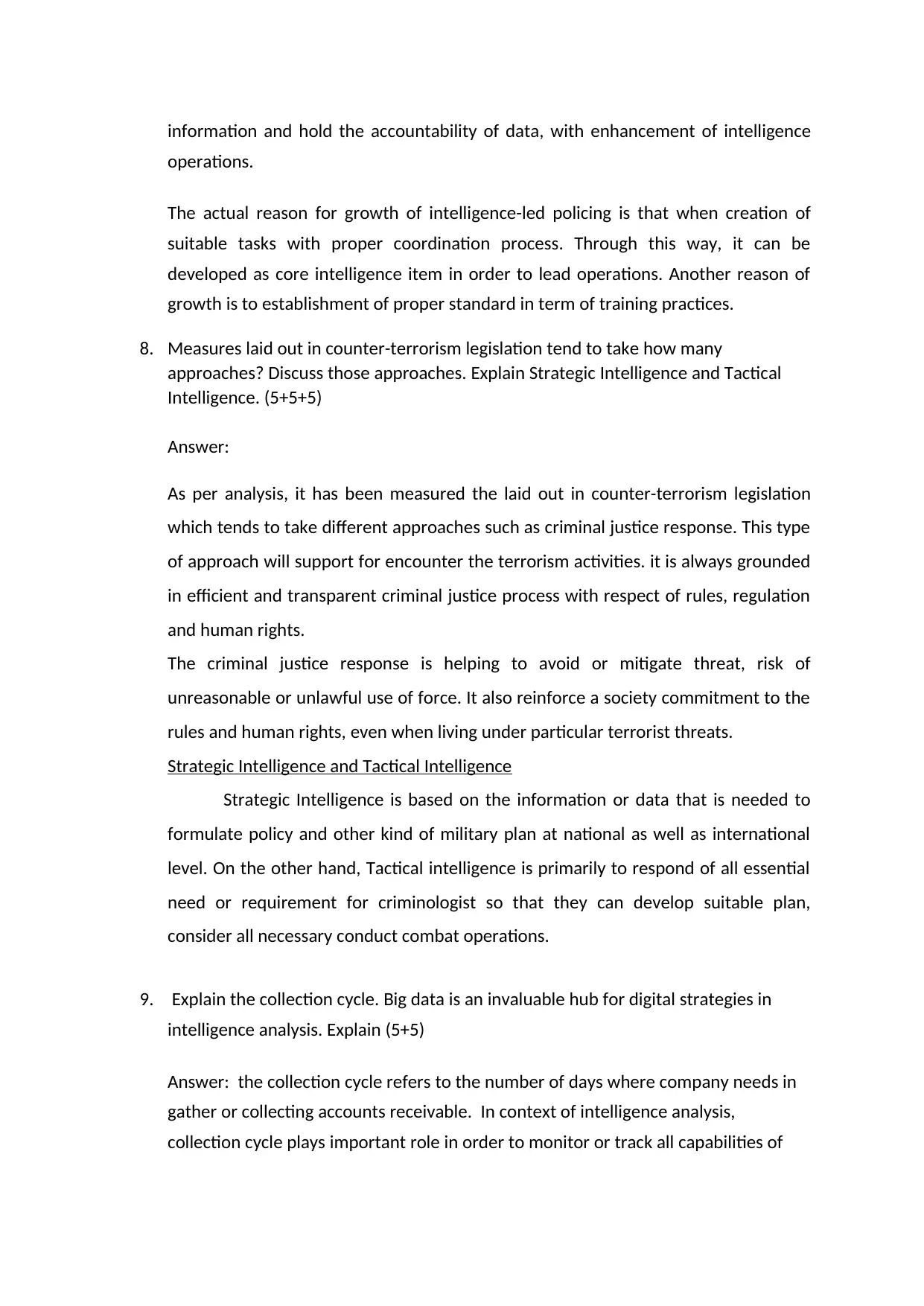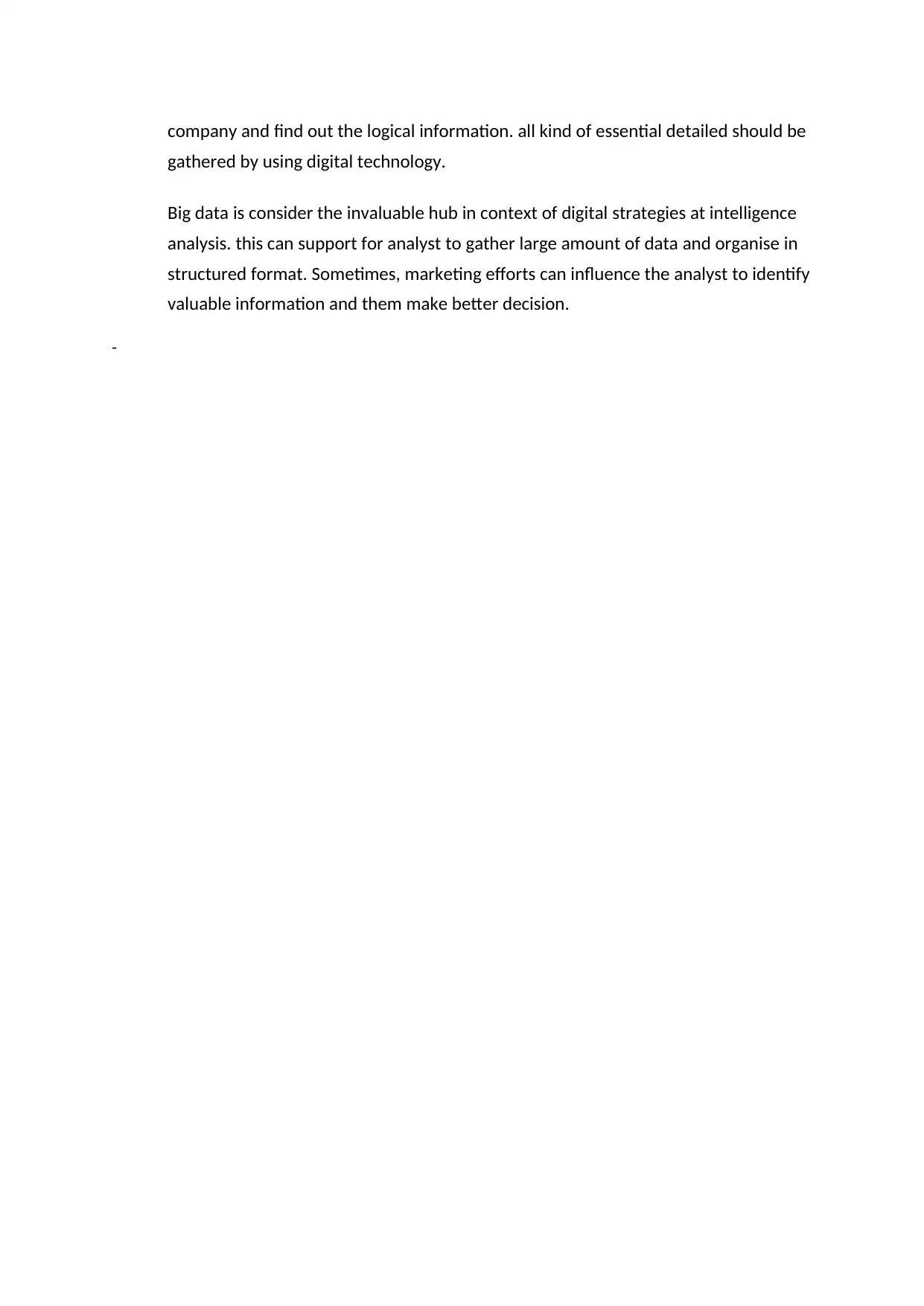This document discusses the key differences between information, intelligence, and analysis in the field of criminal intelligence analysis. It also covers the types of intelligence and the stages of the intelligence cycle. The document provides insights into the knowledge, general mental, and technical abilities required for an effective analyst, as well as the characteristics of an exceptional analyst. Additionally, it analyzes the advantages and disadvantages of the data available for crime psychology research and elaborates on qualitative and quantitative research methods. The document also explores the role of unconscious thought in solving criminal cases and discusses intelligence-led policing, counter-terrorism legislation, and the collection cycle in intelligence analysis.
![[object Object]](/_next/static/media/star-bottom.7253800d.svg)
![[object Object]](/_next/static/media/star-bottom.7253800d.svg)
